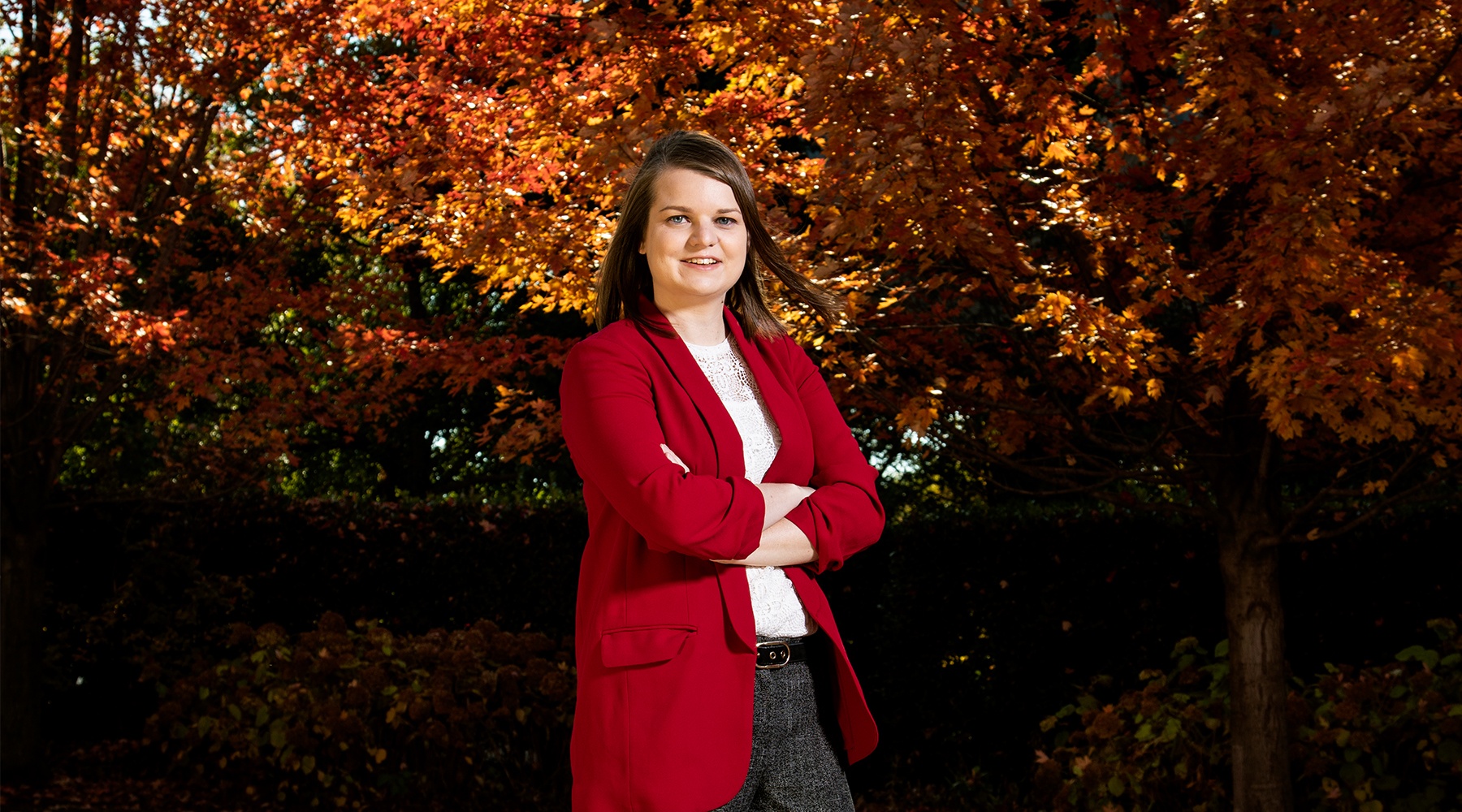On her way from Watonga, Okla., to earning her doctorate at Harvard, Heather Rice got her first taste of working in a lab as an OMRF Sir Alexander Fleming Scholar. She liked it so much, she decided to make a career of it. Now, she’s come back to her home state, as an assistant professor and Alzheimer’s researcher at the University of Oklahoma Health Sciences Center.
What drew you to OMRF’s Fleming Scholar program?
As a freshman at OU, I didn’t fully understand what options were available in the biomedical field outside of careers in medicine. When my professors discussed the research they did in their labs, it sounded really exciting to me. I remembered my high school biology teacher talking about the Fleming program, and I thought that would be the perfect opportunity for me.
How did it compare to high school science classes?
My time at OMRF was unlike anything I had ever experienced in a classroom. The first time my mentor handed me a pipette, I had no idea what to do with it. I learned a lot that summer! It also taught me that to be successful, you had to be able to combine scientific knowledge and technical skills together with creative thinking.
Did it influence your career choice?
That summer solidified my decision to pursue a research career, and I haven’t left the lab since. It also fueled my passion to obtain a Ph.D. and lead my own lab one day. Just as importantly, it gave me the confidence that I could do it.
How did OMRF prepare you for graduate school?
Because I was introduced to research so early in my undergraduate career at OMRF, I was able to gain even more research experience during my remaining three years at OU. That in-depth undergraduate research familiarity was absolutely critical for me in gaining acceptance to Harvard—and for me being successful once I was there.
Words of wisdom for students thinking about applying?
It’s really the best way to become immersed in science and in research at such an early stage. You will grow so much as a person and a scientist. I grew more in those two months than I have at any point in my life.
What brought you back to Oklahoma?
When I thought about where to launch my own lab, I was passionate about contributing to the growth, training and mentoring of students in Oklahoma. In coming back, it is my goal to bring recognition and funding to my home state and to help expand Alzheimer’s disease research in Oklahoma.
What have you missed most about your home state?
Certainly family and friends, but also how friendly everyone is, including strangers. OU football and Thunder basketball rank right up there, too. And I’ve enjoyed all the new areas that have popped



